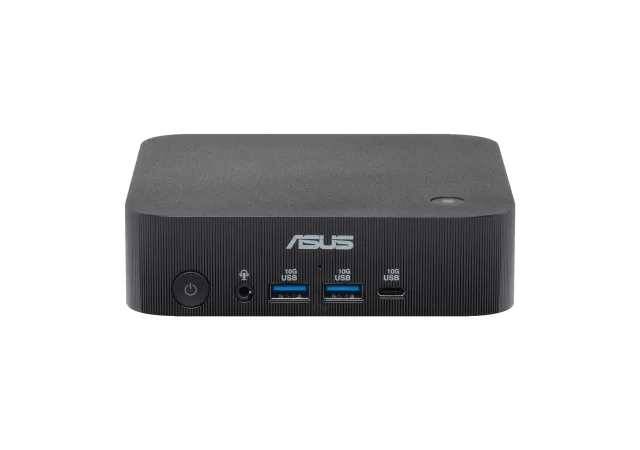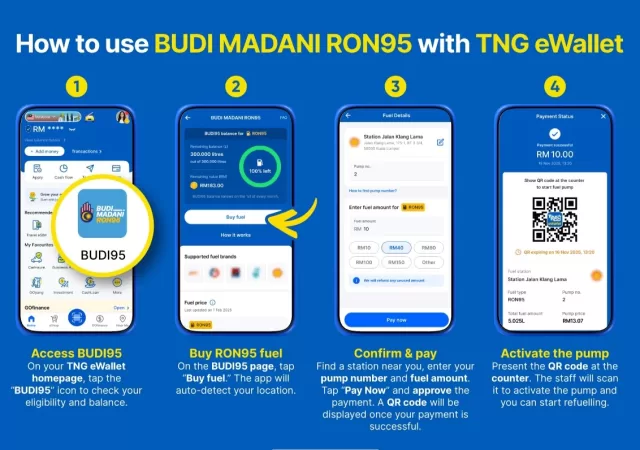As Foldable smartphones become more mainstream, we see brands push to stand out from the crowd with everything but the kitchen sink. Large cover displays, even larger cover displays, interactive cover screens, and even fully interactive home screens built for flip phones. Each one seems to be “better” than the rest.
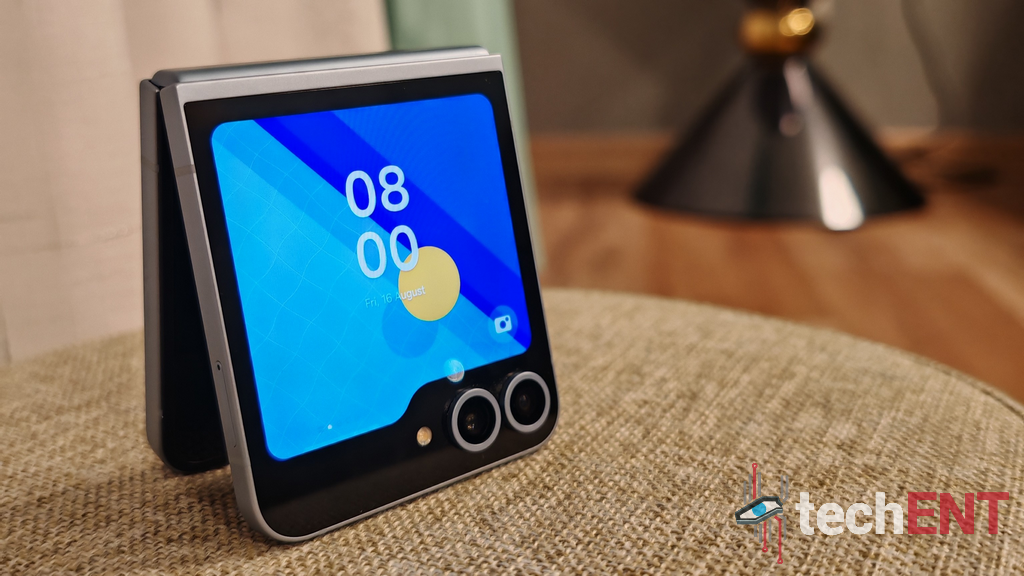
So how’s Samsung looking to separate itself from the pack? Well, it seems like this year, it’s all about Galaxy AI. Samsung’s approach to integrating generative AI experiences is what stands out, but is that enough to justify the increased price point? We’re looking to answer that with our in-depth review of the Galaxy Z Flip6.
Design
Samsung’s latest approach to flip phones isn’t turning its tried and true form factor on its head in any way. In fact, the company is doubling down on the design cues it introduced with the Z Flip5 and is using them to bring even more software features that make the experience more refined. Let’s start off with the cover screen – the surface we’re sure you’ll be interacting with the most. It’s the same design as last year’s Flip5, with the same folder-esque design that allows a sneak peek into your smartphone. However, Samsung has brought some, more thoughtful experiences to the cover screen allowing you to access more with one screen and reduce swiping between panels. We’ll cover this more extensively in the software portion of the review.
The biggest difference you may notice from the get-go is the slimmer form factor of the Galaxy Flip6. While there’s no change in the actual measurements, Samsung’s new design approach has definitely given the appearance of the phone itself being slimmer and easier to manoeuvre in one hand. There’s more traction when you grip the phone and it feels – somehow – more ergonomic. This is largely due to the more angular design of the phone overall; something we saw even with the Galaxy S24 series earlier this year.
That said, the best improvement comes in the improvements that come with the hinge. While outwardly there doesn’t seem to be much in terms of visual updates. Samsung has updated the hinge mechanism to be more efficient and have a simpler design. This has translated into a phone that is a lot lighter than its predecessor. Not only that, the crease which has become the one pain point in any foldable smartphone is less apparent even after prolonged use over 2-3 weeks. While it is visible at some angles, there is less of a palpable dip where the crease is.
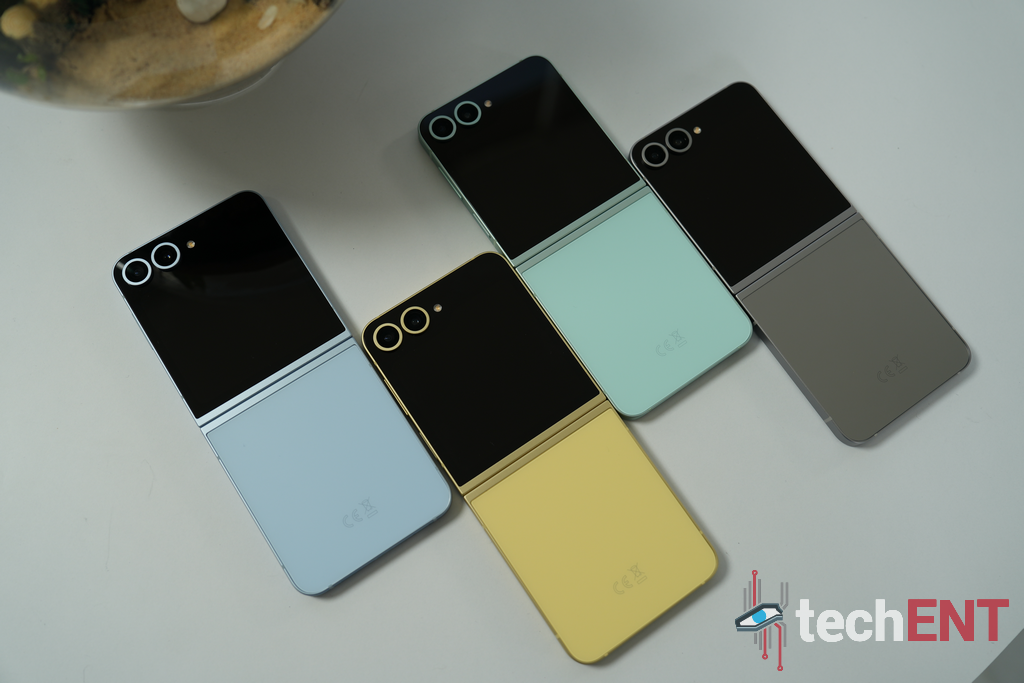
Lastly, when it comes to design, I, personally am in love with the new colour offerings from Samsung. The new more muted pastel colours are definitely more aesthetic and fitting for the Flip line which has become Samsung’s “express yourself” foldable. My personal favourite at the time of writing is the Blue and Mint. However, the crafted black is a close second to these. The introduction of the more masculine “Crafted Black” is also a plus for the Z Flip6.
Hardware
Samsung isn’t just showing some change in the design aesthetics of the Z Flip6, it’s also bringing some much-needed updates to the Flip’s hardware giving it more versatility and power under the hood. These improvements don’t necessarily revolutionize the user experience much, but some of them do impact the features and the user experience.
Specifications
| Processor | Qualcomm SM8650-AC Snapdragon 8 Gen 3 (4 nm) Octa-Core @ 1×3.39GHz Cortex-X4, 3×3.1GHz Cortex-A720, 2×2.9GHz Cortex-A720 & 2×2.2GHz Cotex-A520 |
| RAM | 12GB (As Tested) |
| Memory | 256GB 512GB (As Tested) |
| Graphics Processing Unit (GPU) | Adreno 750 (1GHz) |
| Main Display | Foldable Dynamic LTPO AMOLED 2X panel 6.7-inch (~426 PPI) 2600 nits (peak) FHD+ resolution (1080×2640 pixels) 22:9 Aspect Ratio 120Hz Refresh rate HDR10+ |
| Cover Display | Super AMOLED panel 3.4-inches (~306ppi) 720×748 pixels resolution Gorilla Glass Victus 2 60Hz |
| Operating System | Android 14 with One UI 6.1.1 |
| Battery | Non-Removable 4,0000mAh Fast Charging (25W) Fast Wireless Charging (15W) Reverse Wireless Charging (4.5W) |
| Connectivity | Nano SIM 5G/4G LTE/EVDO/HSPA/CDMA/GSM Wi-Fi 802.11 a/b/g/n/ac/6e(ax) GPS, GLONASS, GALILEO, BDS, QZSS A2DP Bluetooth 5.3 OTG Support USB 3.2 Type-C |
| Camera | REAR: Dual Sensor: 50-megapixel (f/1.8, 23mm (wide angle), 1.0µm Dual Pixel Phase Detection Autofocus (PDAF) Optical Image Stabilisation (OIS) 12-Megapixel (f/2.2,123˚ (ultrawide), 1.12µm) HDR10+ LED Flash 4K Video recording (30/60fps) 1080p Video recording (60/120/240fps) 720p Video recording (960fps) FRONT: 10-Megapixel (f/2.2, 23mm (wide), 1.22µm) 4K video recording (30/60fps) |
| Sensor | Accelerometer Proximity Fingerprint (side-mounted) Gyroscope Compass Barometer Samsung Pay |
| Miscellaneous | Single SIM/eSIM |
| Retail Price (Malaysia) | MYR 4,999 (256GB) MYR 5,599 (512GB) |
| Retail Price (US) | USD$ 1099.99 (256GB) USD$ 1,219.99 (512GB) |
User Interface
Samsung’s One UI interface has unified the user experience across devices – more or less. The near-homogenous experience is not a bad thing as users coming from a standard smartphone have less of a hurdle adapting to the new smartphone. However, the unified UI appearance also hides the many improvements that Samsung has made on a software level when it comes to One UI.
Let’s start off with the accessibility upgrades that come with One UI 6.1.1 – this also applies to Samsung flagships like the S24 series. The notification shade of One UI 6.1.1 is more useful. The screen brightness slider is also equipped with quick toggles for dark mode and eye comfort when you open the full notification shade. On top of that, Samsung has updated the design to be cleaner and less cluttered overall. The quick toggles are stored within their own space. This has been made a little further from surrounding items and in a different shade for better visual separation. It also makes sure you know exactly how many quick toggles you have and allows you sort it the way you like it.
Aside from this, Samsung has been hard at work improving foldable device experiences when it comes to its UX. This started with Samsung’s version of Android 12L which optimised Android itself for better large screen experiences. With the Flip6, Samsung perfects these optimisations even more with new modes and ways to use the smartphone.
Of course, like all Flip devices in the past, you’re able to use the smartphone semi-folded with the lower screen becoming a touchpad in FlexMode. However, Samsung has made this feature even more useful when it comes to the camera app. For people like me who have shaky hands, you’ll be able to have a little better control with a more camcorder-like interface when you have the Flip6 semi-open. This will hopefully give you more stability but it also gives you easier access to all your camera settings easily when shooting.
In addition to this, One UI on the cover screen comes with a whole slew of new optimizations that allow you to make the Z Flip6 truly yours. The extensive customizability starts with the screen saver where you’ll be able to choose from a vast selection of wallpapers and set it up the way you want it. This also plays into Samsung’s Flipsuit cases which bring a new level of interactivity when it comes to personalization. That said, the biggest change is the useful addition of multiple widgets into one screen – something we’ll go into further detail in the multitasking section.
Performance
The performance of Samsung’s Flip series is now truly on par with Samsung’s other flagships in all aspects aside from the camera. This also includes the introduction of features that extend the user experience and tweaks that make the smartphone more efficient when it comes to battery life while squeezing every ounce of performance from the hardware.
Multitasking & Productivity
Multitasking and productivity have become a mainstay in any version of One UI. However, there haven’t been many features that have made the Flip a multitasking device until now – this is particularly true when it comes to the improvements on the cover display.
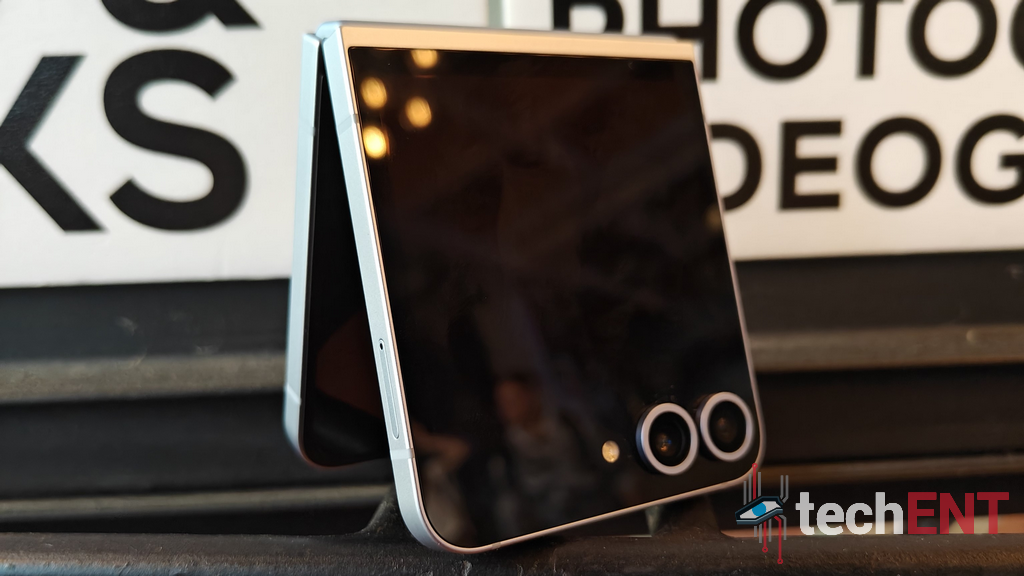
The interface on the cover display comes with a new mode which allows you to set up multiple widgets on a single tile. This has been one of the most impactful features of the Flip6. You’ll be able to set up to four compatible widgets on a cover screen tile. This allows you to get all of the information you need from things like Samsung Health at one go or set up a screen with quick widgets to use apps like recorder. This came in clutch for me on multiple occasions when I was doing interviews – it made things quick and efficient, to say the least.
In addition to this, the Galaxy Z Flip6 comes with the usual split-screen features that we’re used to seeing in any smartphone. This allows you to use two apps simultaneously when needed. Need more? The popup window will allow you one additional window. That said, these run-of-the-mill productivity features are just par for the course of any smartphone at this point.
Call Quality & Connectivity
The Flip6 has crisp call quality and a bevvy of connectivity options including 5G as we would expect from an industry leader like Samsung. The Z Flip6 that we got for review isn’t the usual one for the Malaysian market with dual SIM capabilities. However, you could use the eSIM capabilities of the smartphone to get the same result.
Being a flagship device, it comes as no surprise that the Z Flip6 comes with all the bells and whistles that you’d expect when it comes to connectivity. As mentioned, it comes with 5G support which gives you access to blazing fast speeds where available. In addition to this, you have WiFi 6e support (yes, tech enthusiasts it only has WiFi 6e and not WiFi 7; maybe next year?). This should give you enough speed over WiFi to download apps in the blink of an eye – aside from games, those may take several blinks. It also comes with Bluetooth 5.3 and LE support which is audio devices.
Speaking of audio devices, Bluetooth performance on the Flip6 is pretty good. You can high fidelity audio thanks to AptX and it translates when you use a good set of headphones like the Sony WH-1000XM5 and HiFi audio streaming apps like TIDAL. There are hardly any signal drops or packet losses and the audio stream is still stable across 1 or 2 rooms.
Gaming
Gaming on the Galaxy Z Flip6 is a mixed bag. Don’t get me wrong – the phone performs well – but my focus on making sure I don’t do irreversible damage to it detracts from the gaming experience.
Let’s be straight – there’s no two ways about it. The Flip6 has the insides to perform swimmingly when it comes to games. I mean, I did test it with games like Solo Levelling and Diablo Immortal. These games played well with literally no problems when it came to rendering and fluidity. That said, it did get a bit warm which is to be expected. Even on high-speed games like Need For Speed and Asphalt 8 there was little to no visual aberrations. In fact, on racing games, the phone felt cooler which is to be expected as games like Solo Levelling and Diablo Immortal have many items on the screen at once.
However, the gaming experience for me is affected by my own concerns about the hinge and damaging it. While the hinge is markedly improved from the Flip5, I still can’t get the feeling that if I’m a little too rough with the phone it will affect the hinge – especially since I’m holding it horizontally where it’s most vulnerable. It’s also worth noting that this isn’t a concern exclusively with Z Flip6, as long as the hinge is vulnerable – it’s a concern. Ironically, the same hinge on the Fold6 doesn’t feel as vulnerable when you’re gaming on it. To be fair, this is not something that I would hold against the Flip6.
Battery Life
Battery life is where I would say the biggest improvements come for the Flip6 hardware. It’s gotten a small bump to 5,000mAh but this has translated to pretty significant improvements when it comes to user experience. In synthetic benchmarks, the battery life improvement was only about an hour or 2 at most which is insignificant.
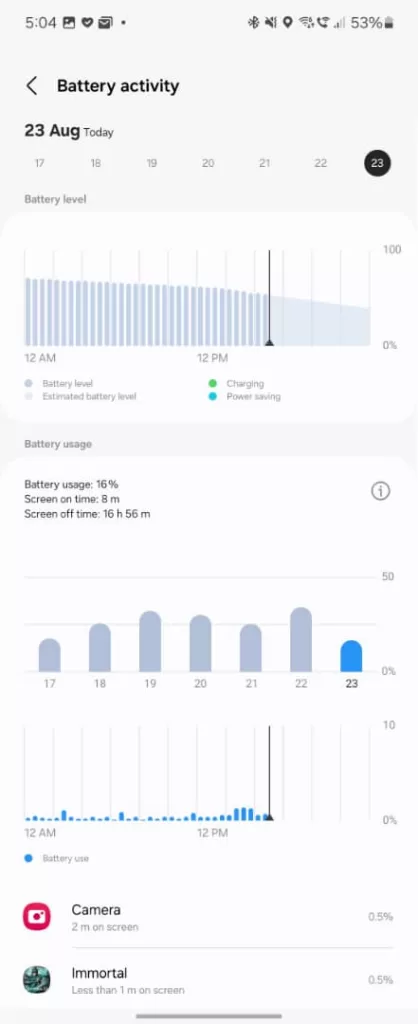
However, when I was using the phone daily this translated to me needing to charge the phone every 1 and a half days. That’s right – 1.5 days – and I’m not talking about working hours. I literally charged the phone every other day. This was with me synching 7 email accounts excluding Gmail and using Instagram and other social media apps continually.
This is huge for people who work on the go as it also means you’re not screwed if you forget to charge your phone. What’s more with quick charging on the smartphone, it is easy to get 10-20% when commuting if you need the top-up.
Galaxy AI
I had to carve out a special section for Galaxy AI in this review simply because that seems to be the push that’s becoming mainstream. We all know Galaxy AI by now with the Galaxy S24 series pushing it and also the emphasis Samsung has placed on it in its promotional items. So, I thought it’d be best to see how these features affected my day to day with the Flip6.
The biggest Galaxy AI feature that I found myself using is the Object Eraser tool. I used this to remove a lot of unwanted items from my pictures to varying degrees of success. This was a welcomed tool when you have to get images for clients or even if something ruined your perfect shot for Social media. That said, other image tools like Sketch to image and even Portrait Studio are welcomed features but I didn’t find myself using them on a daily basis. They’re definitely fun but I didn’t find myself using them too often.
Samsung’s Galaxy AI also has a transcribe feature that came in handy. I found myself using it a lot to transcribe interview recordings. However, Galaxy AI was very hit or miss with the Malaysian accent. Hopefully, this improves with time. That said, Galaxy AI’s other translation features definitely came in handy. Things like live translate will definitely see a lot of use if you deal with people overseas a lot. I only found myself using it to translate WhatsApp chats with my friends from overseas to get my message across more easily in their languages.
Aside from that, Galaxy AI didn’t’ really impact my day-to-day use of the phone. However, that seems to be the place where Generative AI is when it comes to daily interactions and usage now. We’re still in the early days and I expect that these features will become more useful as we progress.
Display
The display of the Galaxy Z Flip6 is one we’re used to seeing in Samsung flagships – a flexible Dynamic AMOLED 2X. The Flip6 comes with an FHD+ resolution with a 120Hz refresh rate. The display itself is a lot more robust and capable of vivid colours and deep blacks. However, like other AMOLED panels, the panel tends to oversaturate some colours like reds and oranges when pumped up to vivid settings. However, in its natural tone mode, it feels a little washed out. These are, however, issues that can be addressed through software updates later on. Samsung’s inclusion of a 120Hz refresh rate is also a plus which brings buttery smooth and fluid animations and a little bit of an edge when it comes to games like PUBG Mobile.
The only thing that takes some getting used to when it comes to the display on the Flip5 is the aspect ratio. With most phones coming with a 16:9 aspect ratio, the 22:9 aspect ratio will seem a little weird at first. You will notice black bars on videos that you usually wouldn’t have any. However, these issues will take a backseat as you continue to use the device.
The FlexWindow or Cover display is the hallmark of this smartphone. The Super AMOLED panel in the FlexWindow does its job pretty well. It delivers high-quality images with good colour reproduction. You wont even realise that it only has a 60Hz refresh rate. However, I don’t think Samsung was prepared for users like me who end up using this display more than the main display. But for all the functions that are possible on the screen, it excels at delivering a near-perfect experience.
Cameras
The Galaxy Z Flip6 continues to come with a dual sensor setup when it comes to its main cameras. However, this year, the Flip6 comes with a larger 50-megapixel main sensor. This is a huge improvement when it comes to the number of megapixels in the main sensor, however, the impact isn’t as apparent when it comes to actual pictures. The main sensor is complemented with a 12-megapixel ultrawide sensor that brings some versatility when it comes to shooting with the smartphone.
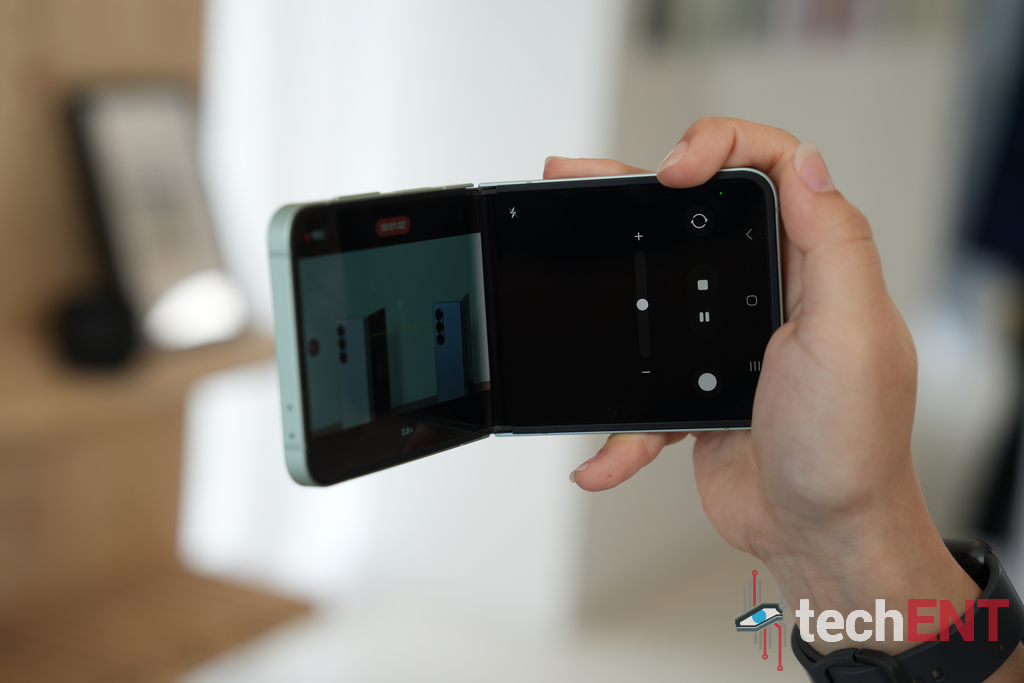
That said, the Galaxy Z Flip6’s overall performance when it comes to the camera isn’t bad by any means. It just falls short of what we expect from Samsung after seeing its prowess with the Galaxy S24 series. Where the Z Fold6 seems to be elevated to parity with the S24, the Flip6 is relegated to an awkward space that falls in between a Galaxy A series smartphone and Samsung’s flagships.
Let me break this down a little bit, the Galaxy Z Flip6 takes good, detailed pictures with one big caveat it needs to have the right lighting conditions. It struggles when it comes to less than ideal situations but it doesn’t fall flat. Take for instance one of the pictures in the carousel below – it was taken against a spotlight in the setup of the area we were in and the details are washed out. This was the same in low lighting. Mind you, this was taken with the front camera setup a 50MP + 12MP setup. That said, I can’t come down too hard on the Flip6 for this as it can be addressed with software updates.
However, aside from that, the main camera setup performs very well. Even indoors with downlights, the camera was able to produce good, detailed pictures. It helps that the algorithm in the camera seems to be able to uplift the final product without losing too much detail. The colours of the pictures are also pretty vibrant. The pictures look lively and the colours pop.
The 10-megapixel front-facing camera on the Flip6 was essentially relegated to video calls. While I did end up using it once or twice for selfies, I found myself defaulting to the Cover Screen to get a good, high-quality selfie with the main camera. Samsung’s new autoframe feature adds to this conundrum. I doubt I’m alone when it comes to this. It’s simply more convenient and produces a better picture.
The Galaxy Z Flip6 Gets More Substance with Productivity-focused Features and Galaxy AI but Isn’t Indomitable Yet
The Galaxy Z Flip6 is a great update to the lineup. It brings a lot of meaningful, sought-after improvements. Galaxy AI brings a lot more substance to a phone that was once thought to be very superficial. The same can be said about the updated specifications and supercharged performance optimisations. To be honest, I wasn’t expecting the Flip6 to gain my vote as a productivity device but it certainly has changed my tone after using it. I’ve never disliked the lineup but it never was a consideration for an upgrade. However, with the new trajectory that the Flip6, it’s definitely is becoming a big contender.
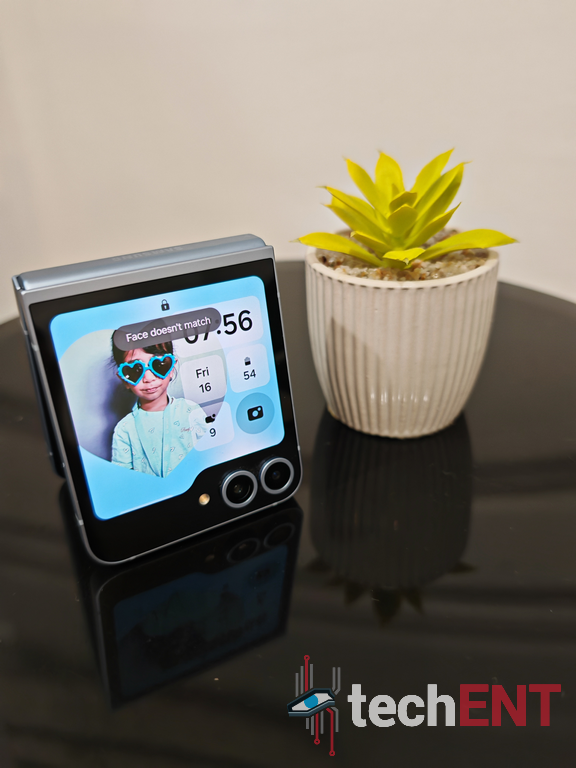
However, the Z Flip still falls in that weird in-between space of being a flagship by price but a little less when it comes to performance. I feel like Samsung is a step away from truly making the Z Flip a “wow’ device that we’ve come to crave from the brand. That said, if you’re looking for a fashionable upgrade to your smartphone with a good amount of features – you should consider the Galaxy Z Flip6. It’s also why the Z Flip6 is being awarded a Writer’s Choice Award from techENT.




